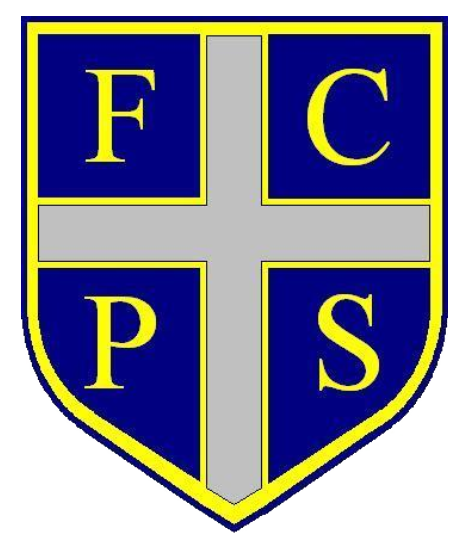Intent
At Fellside Primary School we believe that a quality English curriculum should develop children’s love of reading, writing and discussion. It is our intention when teaching the English curriculum that our pupils acquire the necessary knowledge, skills and understanding to become lifelong learners and linguists. We strive to ensure that all our pupils receive a well-rounded learning experience when reading, writing, speaking and listening, which will equip them with the fundamental tools to achieve, throughout their learning journey at Fellside Primary School. It is our intention to immerse pupils in the wonders of high-quality texts to instil a love for reading, a passion for discovery and a confidence to explore their imagination. We recognise the importance of nurturing a culture where children take pride in their writing, can write clearly and accurately, and adapt their language and style for a range of contexts. We want to inspire children to be confident in the art of speaking and listening and who can use discussion to communicate and further their learning.
The overarching aim for English in the national curriculum is to promote high standards of language and literacy by equipping pupils with a strong command of the spoken and written word, and to develop their love of literature through widespread reading for enjoyment.
The national curriculum for English aims to ensure that all pupils:
- read easily, fluently and with good understanding;
- develop the habit of reading widely and often, for both pleasure and information;
- acquire a wide vocabulary, an understanding of grammar and knowledge of linguistic conventions for reading, writing and spoken language;
- appreciate our rich and varied literary heritage;
- write clearly, accurately and coherently, adapting their language and style in and for a range of contexts, purposes and audiences;
- use discussion in order to learn; they should be able to elaborate and explain clearly their understanding and ideas;
- are competent in the arts of speaking and listening, making formal presentations, demonstrating to others and participating in debate.
English program of study Key Stages 1 and 2, National Curriculum, DfE (2014).
Implementation
Fellside Community Primary School’s programme of study for English is set out year-by-year for key stages one and two as per the National Curriculum (2014). At Fellside Community Primary the following principles support the delivery of the National Curriculum:
- Pupils are taught in mixed ability classes and planning is adapted to meet the different needs and abilities within the class.
- Long term overviews identifying texts and writing genres can be found on the school website.
- Generally, a term consists of a selection of activities to promote narrative, non-narrative and 1 week studying poetry. Each unit of learning has a specific focus e.g., in a narrative unit the focus might be to develop character or setting. Similarly, in non-narrative, the focus would be a study of a particular text type and, where possible, this will be linked to the quality fiction text being studied and/or the current curriculum theme.
- We promote the model of writing for a purpose with observance of four discrete categories as follows: Writing to Entertain; Writing to Inform; Writing to Persuade (KS2 only); and Writing to Discuss (Upper KS2 only)
- A series of poems has been identified (x2 per year group) to learn by heart and to perform.
- Formative assessment and feedback informs short term planning and next steps in learning.
- Fellside teachers plan time within writing lessons for children to reflect on their marked learning, and independently respond to teacher prompts to improve their writing.
- Guided reading and phonics sessions are planned and taught separately to the daily English lessons.
Impact
At Fellside Community Primary School, assessment of children’s learning is used to inform planning for the future and thus ensure pupils’ progress. Staff keep a record of half termly writing progress based on pieces of written work from English lessons and across other curriculum subjects. A Local Authority produced year group profile linked to age-related assessment criteria for writing (WGAP) is used to assist staff, in recording progress. In addition, planned opportunities for moderation occur throughout the year both within school and with cluster schools to ensure standards and expectations are in line with each other.
A reading assessment file is also kept with records of children’s phonic ability, as well as lists of high frequency words achieved, in order to gain a greater understanding of strategies children use when approaching unfamiliar words. Staff also complete a reading assessment profile (RGAP) on a termly basis which records children’s progress in relation to different assessment foci (AFs).
Teachers in year 2 and 6 also use the Teaching Assessment Frameworks (TAF) to assess children’s progress against statutory objectives. This is completed alongside GAP assessments to provide specific evidence of achievement which is then reported externally. Children in these year groups also complete end of key stage statutory assessment tests.
Accelerated Reading provides an assessment tool for teachers to set personalised targets for reading. Every child taking part in AR will complete a STAR reading test at the beginning of the year and at the end of each half-term. It is a twenty minute multiple choice reading assessment completed individually on the computer. Questions continually adjust to depending on the responses from each pupil. After each pupil takes a STAR reading test, the teacher will assess the results and a ZPD reading range will be allocated. The range aims to challenge a child without causing frustration or loss of motivation. The ZPD range and reading age determined by the assessments ensure each pupil is reading a book within their capabilities, and provides teachers with data on each pupil’s progress.
